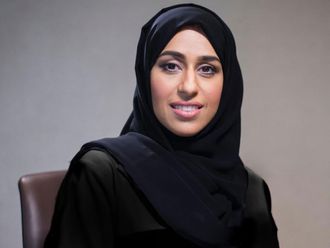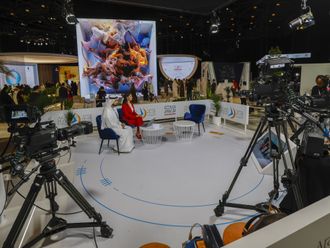Abu Dhabi: The Federal National Council’s (FNC) session on Tuesday will see two members urging the government on two main issues — encourage men to work after pension age and allow early retirement of Emirati women.
Hamad Al Rahoumi, an FNC member from Dubai, will pose a question to Obaid Humaid Al Tayer, Minister of State for Financial Affairs, on why senior citizens are discouraged from supplementing their pension with additional income. Al Rahoumi argues that the government is missing the point by setting Dh9,000 as a ceiling of combined pension income.
Under the present laws, pensioners are only allowed to supplement their pension with additional income if combined pension income does not exceed Dh9,000.
“The pension law is outdated and needs to be revised especially as the minimum pension income is now set at Dh10,000,” Al Rahoumi said, asking why seniors are being discouraged from taking up jobs, while statistics show more than two-thirds of them are out of work.
Al Rahoumi said the government should help older Emiratis to work, if they are able and wish to do so. “Seniors should be allowed to have substantial earnings and still receive an age pension. Preventing them from supplementing their pension not only hurts many Emiratis, but also hurdles retaining the rich expertise they earned after long service,” he said.
Al Tayer, also head of the General Authority for Pensions and Social Security, will also be questioned by Dr Abdullah Hamad Al Shamsi, a member from Ajman, on why the Dh10,000 minimum pension income does not cover those who retired before January 1, 2008.
“Excluding senior citizens who retired before that date caused a substantial difference between income of pensioners who used to hold the same job grade,” Al Shamsi said.
Updating data
Al Shamsi also sought an update of pensioners’ data by linking the General Authority for Pensions and Social Security with the Emirates Identity Authority.
The House has been pressing since 2007 for allowing early retirement of Emirati women. In 2007, pension rules were changed to allow Emirati women employed by the government to work for 20 years before retirement, rather than the previous 15. However, since then, the House has been repeatedly demanding that the move be reversed.
Mosabah Saeed Al Katbi, a member from Sharjah, argued that early retirement of women would help reduce unemployment, allow women to raise their own children rather than rely on maids and cut down on late marriages.
Hamad Al Rahoumi will pose a question to Dr Anwar Mohammad Gargash, Minister of State for FNC Affairs, about why imams of mosques are not allowed to use Quranic incantation to heal people suffering from psychological and physical illnesses.
Al Rahoumi said preventing imams from practising Quranic healing has led people to turn to sorcerers.
Emirati imams
Marwan Bin Galita, a member from Dubai, will ask Dr Gargash about the lack of Emirati imams.
“In 2008, the Cabinet passed a motion of the House that more Emiratis should be made imams and muezzins [person who calls to prayer], but just 50 citizens were recruited in these two positions between 2008 and 2009,” he said, blaming it on low salary and benefits drawn by imamas and muezzins compared to their peers recruited in the Abu Dhabi Judicial Department.
The House will also debate remaining articles of the Companies Law and policies of the Ministry of Economy.












